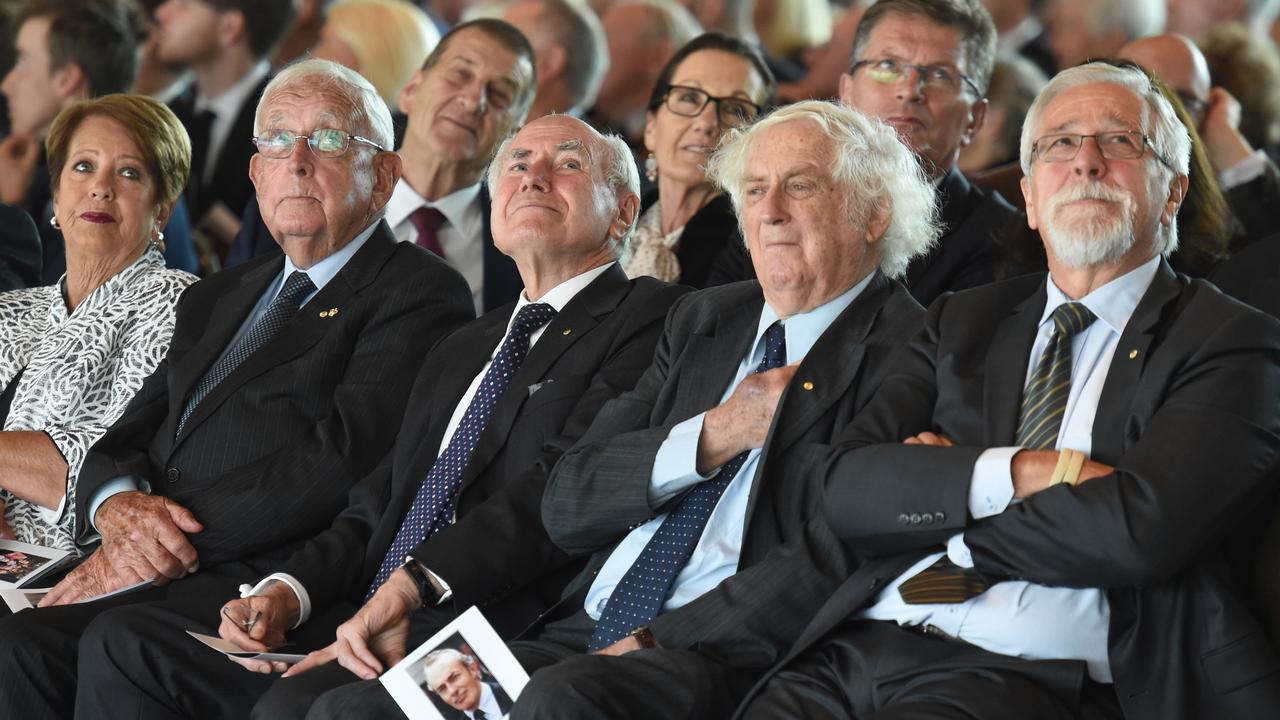News Corp editors told to focus on print
News Corp Australia has told its editors to renew their focus on printed newspapers to reinvigorate their agenda-setting position.

News Corp Australia has told its editors to renew their focus on the printed product of newspapers to reinvigorate their agenda-setting position in the news cycle.
At a News Corp executive gathering, group editorial director Campbell Reid also attacked Facebook and Google for irresponsible behaviour, arguing newspapers had a more important role than ever as a trusted voice in local communities.
And while Mr Reid said digital avenues offered an exciting way to interact with readers, he said the “internet darlings” were also really good at allowing their channels to be used for porn, cyber-bullying, recruitment of terrorism and pedophilia.
“Facebook is not a media company and Google says their intention is to do no harm, but they don’t really care when others use their channels for evil and they don’t take enough responsibility for it,” Mr Reid told The Australian.
“Digital technology is unbelievable, extraordinary and I’m its biggest fan. But it also does porn, pedophilia, cyber-bullying and the recruitment of terrorists really well.
“Which just maybe is leading to something interesting, to something where their incredibility and irresponsibility is reaffirming the credibility and responsibility of us.”
His presentation to editors of News Corp’s Australian papers, including The Daily Telegraph, The Australian, Herald Sun and The Courier-Mail, was a call to muscle up: columnists should be bolder and the paper’s exclusive and original content should be flaunted.
He told editors to reinvest in their newspapers in an intellectual sense and recognise that their papers capture a conversation in the midst of the never-ending news cycle. They set the agenda.
“We have to be a lot more aggressive and confident about what we do. It’s us who sets the agenda,” he said.
His message was driven by a realisation that the digital revolution had already happened, the world had changed — and newspapers had survived.
“The world is not changing, it has already changed,” Mr Reid said. “The question is not, when is the internet going to kill newspapers, but why has it failed to do so.
“My contention is if the digital revolution was going to kill papers, it would have already done so, but I think the world is coming to understand the incredible duty that a paper performs in its society.”
That duty included finding out stories that people wanted to know about, investigating these stories and then prioritising the news and delivering it in an authoritative, trusted and responsible way.
“It’s the newspaper newsrooms that find out the information that the digital world then discusses,” he said.
The media industry itself was mostly responsible for talking down its own future and a change of attitude was necessary, Mr Reid said.
“We have to embrace the challenge and the joy of this incredible revolution. We have the privilege of being here right now,” he said.
“I think one thing that’s really interesting to me is we have this incredible good fortune of being participants in one for the great communication revolutions of human history and we can remember what life was like before the smartphone.”
Mr Reid said he called his presentation “Newspapers — A Love Story”, because when many in the industry talked about the printed product, it was usually a dispassionate discussion about how they were an excellent source of news from a position of authority.
“Which is all true but they can’t have survived for 175 years, as the Melbourne Herald and theGeelong Advertiser both have, if people don’t have some kind of emotional attachment to you,” Mr Reid said.
He said fears about newspapers’ decline were similar to fears about the future of radio in the 1950s and 60s after the arrival of television.
Mr Reid cited The Bulletin as an example of a product that had surrendered when circulation fell from its glory days. ACP shut it down in 2008 when circulation was around 57,000.
But newcomers such as The Saturday Paper could only hope for the figures The Bulletin had at the time it closed.
Figures from media companies also show that print is still financially viable, with the majority of revenue derived from the companies’ printed product rather than digital subscriptions.
The facts were the same the world over, Mr Reid said, pointing to a quote by media analyst Ken Doctor, who said “75 per cent or more of the money flowing in to pay the journalists still come from print — and we know there is no digital business model yet able to pay for large local newsrooms”.
Pew research showed 56 per cent of people who consume newspaper content read it in the print form, while 6 per cent consumed it on the web and 5 per cent on mobile phones. 11 per cent read it in all three formats.
In his presentation, Mr Reid also pointed to American businessman Warren Buffett’s investment in newspapers. In the past three years, Mr Buffett has bought 28 regional papers for about $US344 million.
“Newspapers continue to reign supreme, however, in the delivery of local news,” Mr Buffett said.
“If you want to know what’s going on in your town — whether the news is about the mayor or taxes or high school football — there is no substitute for a local newspaper that is doing its job.’’




To join the conversation, please log in. Don't have an account? Register
Join the conversation, you are commenting as Logout